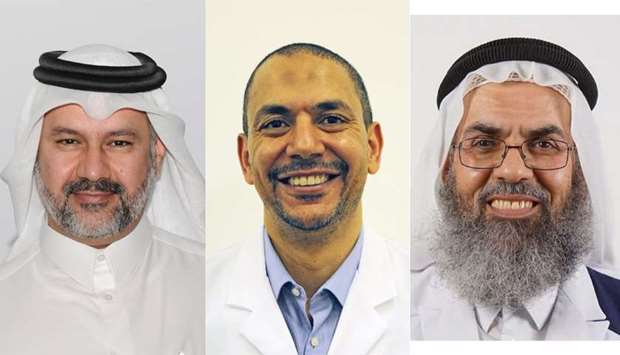Qatar is raising awareness as the Global Sepsis Alliance states that sepsis is the underlying cause of death from most infectious diseases, including viruses such as Covid-19.
Dr Abdulla al-Ansari, chief medical officer at Hamad Medical Corporation (HMC) explained the onset of acute sepsis can pose a significant mortality risk or be the cause of significant long-term morbidity requiring ongoing treatment and support.
“Sepsis is a medical emergency and one where timely intervention is essential to prevent septic shock and potential death or persistent health impairments. Global research has shown that up to 50% of sepsis survivors suffer from long-term physical and/or psychological effects of the condition. From a healthcare perspective, it is essential to monitor patients carefully in the months after they have been discharged from the hospital to make sure the patient is safe and to avoid any risk of renewed infections and re-hospitalisation,” he explained.
According to international statistics, every year between 47 to 50mn people contract sepsis, and at least 11mn people die from it (one in five deaths worldwide are associated with sepsis). International clinical consensus highlights the need for health professionals to recognise early warning signs of sepsis and to carry out treatment in severe cases within one hour following diagnosis.
Dr Ahmed Labib, senior consultant at the Medical Intensive Care Unit at Hamad General Hospital highlighted the importance of greater awareness of the basic signs and symptoms of sepsis. He notes that sepsis awareness is still relatively low among the general public and research indicates that around 80% of sepsis cases occur outside hospitals. A lack of knowledge and awareness among patients and their family members makes sepsis the number one preventable cause of death worldwide.
“There are six common signs that may indicate sepsis, these include slurred speech or exhibiting confusion, extreme shivering or muscle pain, fever, passing no urine all day, severe breathlessness, and skin looking mottled or generally discoloured. Many people with sepsis have expressed a feeling that they will die, which of course can be terrifying. More awareness that can support suspecting sepsis is a first major step towards early recognition and diagnosis and ultimately better patient recovery outcomes,” said Dr Labib.
Dr Mohamed Janahi, chief, paediatric infectious disease at Sidra Medicine explained that children and pregnant women are among the at-risk groups as they are more susceptible to infections.
“While anyone can develop sepsis, certain vulnerable population groups are more at risk, including people with chronic diseases, older people, pregnant or recently pregnant women, and children, particularly premature babies and infants whose immune system is not fully developed. Literature suggests that about 40% of sepsis cases around the world involve children under the age of five,” said Dr Janahi.
Qatar’s National Sepsis Programme remains an important initiative to enhance healthcare professionals’ knowledge of sepsis detection and treatment, based on international best practice. Sidra Medicine is hosting the Qatar 7th National Sepsis Symposium on World Sepsis Day (September 13) from 8am to 12.45pm.
HMC’s Sepsis Steering Committee is recommending interested clinicians attend the free World Sepsis Meeting titled ‘Breaking Barriers around the World’. The virtual symposium, endorsed by the Global Sepsis Alliance, will take place from September 12 to 16. More than 150 speakers from 55 countries will speak on many aspects of sepsis, including Covid-19 and the link between Covid-19 and sepsis.

